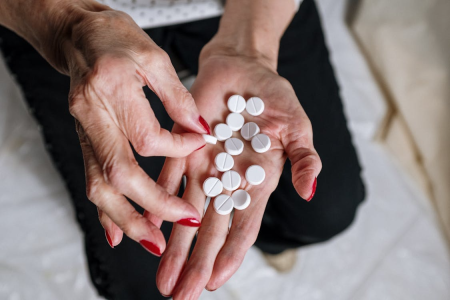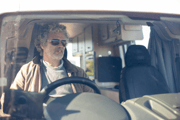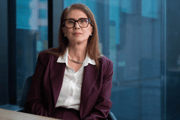You know what’s finally on the PBS? The cancer drug doctors have been waiting for
By
Maan
- Replies 0
A recent government announcement has brought renewed hope to Australians facing one of the most common—and feared—health battles.
A change to a national program could ease both the emotional and financial strain tied to a devastating diagnosis.
Here’s how one update could make a life-changing difference for hundreds of families each year.
A significant step forward in breast cancer treatment was made after a powerful government decision that could change hundreds of lives each year.
For patients who had once been forced to choose between financial hardship and access to essential treatment, that decision now held a very different weight.
While many already knew about the drug Kisqali (ribociclib) for advanced breast cancer, what came next offered new hope for those facing the disease in its earlier stages.
From 1 July, Kisqali became far more affordable, following its expanded listing under the Pharmaceutical Benefits Scheme (PBS). The move meant patients with early-stage, hormone receptor-positive, HER2-negative, lymph node-positive breast cancer who were at high risk of recurrence after surgery could finally receive the same subsidised access.
Previously, a course of Kisqali could cost more than $140,000—an amount well out of reach for most Australians. Now, thanks to the updated PBS listing, patients would only pay a fraction of that.
Specialist Oncologist Dr Belinda Yeo called the change a major development in the fight against breast cancer.
‘We know when you combine Kisqali with endocrine therapy, more patients will not have the cancer return,’ she shared.
‘It’s a frustrating situation that patients find themselves in, is that the risk of the cancer coming back is not necessarily different from year two or three to year five or six.’
Roughly 70 per cent of early-stage breast cancer cases fall into the category eligible for this expanded treatment. But while the numbers were compelling, it was the real-life impact that made the change especially powerful.
Catherine Mclardy was just 38 when her life changed after a casual comment from another mum prompted her to book a check-up.
‘I joked around that my breast was popping out of the bra a little bit, and another mum said: “Oh, you should go and get that checked”,’ she said.
She did—what followed was a series of tests and a diagnosis that would lead to surgery, 16 rounds of chemotherapy and 25 rounds of radiation. Though she was now cancer-free, the fear of recurrence was something she carried every day.
‘I sort of felt like I almost had the Grim Reaper’s hand on my shoulder sometimes just thinking, you know, it’s not a matter of if, but when.’
When she found out Kisqali would now be available to her, her reaction was immediate.
‘Feels like I’d won the lottery, because it’s so expensive. So to know that people have options when these kinds of medications go on the PBS, it is really like hitting the jackpot.’
Federal Health Minister Mark Butler said: ‘For Labor, that is what the PBS is all about. Access to the best available treatment at affordable PBS prices.’
The drug works by blocking certain proteins that help cancer cells grow, slowing—or even stopping—their progression. And for those at high risk of recurrence, that mechanism could mean the difference between life and death.
Kirsten Pilatti, CEO of Breast Cancer Network Australia, stressed the importance of this expansion, particularly as younger people face increasing rates of diagnosis.
‘And we do know, unfortunately, there is an increase in the number of young people being diagnosed with breast cancer,’ she said.
‘This treatment today really will help to make sure that we can reduce the risk wherever possible of their breast cancer coming back, which is our ultimate aim is to get the breast cancer early to make sure that we give all of the treatment possible to really help reduce the risk of their breast cancer returning.’
While early detection remained key, Pilatti reminded Australians that roughly 20 per cent of breast cancer patients were under the age of 50. And even with successful initial treatment, the fear of relapse never truly disappeared.
With breast cancer still the most common cancer among Australian women—with an average of 58 diagnoses and nine deaths per day—the pressure to provide better outcomes was ongoing.
By expanding access to Kisqali, the government hoped to not only reduce the medical risks but also ease the emotional and financial burden carried by patients and their families.
For women like Catherine, it was more than a policy update—it was a second chance.
Want to understand how this treatment actually works in the body?
This quick explainer breaks it down—definitely worth a look if you or someone you love has faced breast cancer.
Source: Youtube/Dr. Rob Swanda

With treatments like this now within reach for more Aussies, do you think the government is doing enough to support cancer patients as they age? Let us know your thoughts in the comments.
In a previous story, we covered a troubling mix-up that led to two women receiving false cancer diagnoses—highlighting just how crucial accuracy is when lives are on the line.
For senior Australians navigating ongoing tests, treatments and second opinions, stories like these serve as a sobering reminder to stay informed and ask questions.
If you missed it, it’s worth revisiting to understand how simple errors can have serious consequences.
Read more: This mix-up led to false diagnoses for two women! What happened?
A change to a national program could ease both the emotional and financial strain tied to a devastating diagnosis.
Here’s how one update could make a life-changing difference for hundreds of families each year.
A significant step forward in breast cancer treatment was made after a powerful government decision that could change hundreds of lives each year.
For patients who had once been forced to choose between financial hardship and access to essential treatment, that decision now held a very different weight.
While many already knew about the drug Kisqali (ribociclib) for advanced breast cancer, what came next offered new hope for those facing the disease in its earlier stages.
From 1 July, Kisqali became far more affordable, following its expanded listing under the Pharmaceutical Benefits Scheme (PBS). The move meant patients with early-stage, hormone receptor-positive, HER2-negative, lymph node-positive breast cancer who were at high risk of recurrence after surgery could finally receive the same subsidised access.
Previously, a course of Kisqali could cost more than $140,000—an amount well out of reach for most Australians. Now, thanks to the updated PBS listing, patients would only pay a fraction of that.
Specialist Oncologist Dr Belinda Yeo called the change a major development in the fight against breast cancer.
‘We know when you combine Kisqali with endocrine therapy, more patients will not have the cancer return,’ she shared.
‘It’s a frustrating situation that patients find themselves in, is that the risk of the cancer coming back is not necessarily different from year two or three to year five or six.’
Roughly 70 per cent of early-stage breast cancer cases fall into the category eligible for this expanded treatment. But while the numbers were compelling, it was the real-life impact that made the change especially powerful.
Catherine Mclardy was just 38 when her life changed after a casual comment from another mum prompted her to book a check-up.
‘I joked around that my breast was popping out of the bra a little bit, and another mum said: “Oh, you should go and get that checked”,’ she said.
She did—what followed was a series of tests and a diagnosis that would lead to surgery, 16 rounds of chemotherapy and 25 rounds of radiation. Though she was now cancer-free, the fear of recurrence was something she carried every day.
‘I sort of felt like I almost had the Grim Reaper’s hand on my shoulder sometimes just thinking, you know, it’s not a matter of if, but when.’
When she found out Kisqali would now be available to her, her reaction was immediate.
‘Feels like I’d won the lottery, because it’s so expensive. So to know that people have options when these kinds of medications go on the PBS, it is really like hitting the jackpot.’
Federal Health Minister Mark Butler said: ‘For Labor, that is what the PBS is all about. Access to the best available treatment at affordable PBS prices.’
The drug works by blocking certain proteins that help cancer cells grow, slowing—or even stopping—their progression. And for those at high risk of recurrence, that mechanism could mean the difference between life and death.
Kirsten Pilatti, CEO of Breast Cancer Network Australia, stressed the importance of this expansion, particularly as younger people face increasing rates of diagnosis.
‘And we do know, unfortunately, there is an increase in the number of young people being diagnosed with breast cancer,’ she said.
‘This treatment today really will help to make sure that we can reduce the risk wherever possible of their breast cancer coming back, which is our ultimate aim is to get the breast cancer early to make sure that we give all of the treatment possible to really help reduce the risk of their breast cancer returning.’
While early detection remained key, Pilatti reminded Australians that roughly 20 per cent of breast cancer patients were under the age of 50. And even with successful initial treatment, the fear of relapse never truly disappeared.
With breast cancer still the most common cancer among Australian women—with an average of 58 diagnoses and nine deaths per day—the pressure to provide better outcomes was ongoing.
By expanding access to Kisqali, the government hoped to not only reduce the medical risks but also ease the emotional and financial burden carried by patients and their families.
For women like Catherine, it was more than a policy update—it was a second chance.
Want to understand how this treatment actually works in the body?
This quick explainer breaks it down—definitely worth a look if you or someone you love has faced breast cancer.
Source: Youtube/Dr. Rob Swanda
Key Takeaways
- From 1 July, Kisqali became more affordable for early-stage breast cancer patients through the expanded PBS listing.
- The drug, once costing over $140,000, now offers high-risk patients a significantly cheaper treatment option.
- Experts and advocates welcomed the change, noting it could prevent cancer recurrence and support younger patients.
- For survivors like Catherine Mclardy, the subsidy felt life-changing, easing both financial and emotional strain.
With treatments like this now within reach for more Aussies, do you think the government is doing enough to support cancer patients as they age? Let us know your thoughts in the comments.
In a previous story, we covered a troubling mix-up that led to two women receiving false cancer diagnoses—highlighting just how crucial accuracy is when lives are on the line.
For senior Australians navigating ongoing tests, treatments and second opinions, stories like these serve as a sobering reminder to stay informed and ask questions.
If you missed it, it’s worth revisiting to understand how simple errors can have serious consequences.
Read more: This mix-up led to false diagnoses for two women! What happened?








